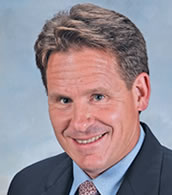Women’s Health
What’s New?
Chris Longbella, MD
& Frank LoRusso, MD
Obstetrics/Gynecology
Southside OB-GYN –
Eau Claire
ets start with the youngest women-adolescents! Did you know that the average age of starting to menstruate (menarche) in the USA has declined from 15 to 12.5 years of age? Nationwide, teen sexual activity increases with age, rising from 32 percent in 9th graders to 62 percent in 12th graders. Wisconsin statistics are slightly lower, but not much. One in four sexually active teens is infected with a sexually transmitted disease (human papillomavirus, Chlamydia, herpes, or trichomoniasis).
Historically we have recommended that when a women becomes sexually active, they should start having regular gynecologic exams, including a Pap smear.
Our newest guidelines recommend adolescent women visit the doctor when becoming or consider becoming sexually active. We no longer recommend doing a Pap smear as part of that visit unless it has been three years since the onset of their sexual activity. As we have started to better understand the cause of cervical cancer (exposure to high risk types of the human papilloma virus-HPV), we know that cervical cancer is extremely rare in adolescents (1–2 per million at 12–19 years of age) because of the tremendously good job an adolescent’s immune system does in suppressing the effects of the virus and healing the mild precancerous changes that can occur in the cervix from the virus.
Although we may not recommend a Pap smear for a newly sexually active teen, we do encourage a visit to discuss birth control, sexually-transmitted disease (STD) testing and update of routine health screenings. We can now do STD testing through the urine, meaning teens can still be tested without necessarily being subjected to a pelvic exam.
The best strategy if you want to avoid a diagnosis of cervical cancer or genital warts caused by exposure to HPV is to be to be vaccinated! The vaccine Gardasil is available to females age 9–26 with the standard recommendation being for between 11–12 years of age and before the onset of sexual activity. The vaccine can be given at any time in the 9–26 year old window and still be effective. The vaccine is widely available at the doctors office and is given in a series of three injections. The vaccine is generally well tolerated. We encourage all of you to think about adding it to the “list” of things to consider having teenage girls do as wise preventative health.
Never have we had as many options for birth control as we do now. The newest option, “Essure”, is a permanent sterilization procedure that we can do in the doctors’ office under minimal sedation. The procedure involves utilizing a very small scope to place a small coil into the opening of each of the fallopian tubes. The procedure itself takes about 15 minutes and is done with small amounts of sedation and local anesthesia. Compared to the standard “tubal ligation” procedure, with Essure the patients have less anesthesia exposure, less risk, less recovery and less cost! Women can assume normal activity later the day of the procedure! The one important difference from traditional tubal ligation is the fact that with Essure, couples have to continue to use contraception for three months after the procedure until the tubal openings have grown shut and we have done a test to show they are really blocked.
There are several other relatively new options for contraception that may warrant a trip to the gynecologist’s office. There is a lot that is new in the area of gynecologic surgery and other treatment options for some of the most common problems women experience. The difficulty today is knowing how to make decisions about all of the treatment options available, both medical and surgical, for your specific problem and situation. With so much new technology, it can be very confusing to try and decide whether what is new is actually better! Our advice is simple-find a physician you can work with who you believe listens to you, answers your questions, gives options, is informative and seems to be up-to-date with what our scientific research is saying about what really works and has value for all of us as patients! Don’t be afraid to keep looking around until you find that person.
Saving the best and most important topic for last, let’s finish with health prevention and wellness. Most of us are more confused than ever about all the latest changes in recommendations about womens health screening exams. With so many different expert opinions and research out there coming from so many different professional societies and panels, even us doctors are getting confused. We have a very simple solution! It is still valuable to get in to see a care provider you know, who you can communicate well with to talk about your health EVERY YEAR! In that discussion, it should be very easy to review which screening tests and exams make sense for you. The one constant of those recommendations is that they are constantly changing! What hasn’t changed is the fact we still know there is value in that “annual” exam, having that discussion and making a plan that works for you.
Dr. Longbella & Dr. LoRusso – Southside Medical Clinic
For information or to schedule an appointment:
715.836.9242 | www.oakleafmedical.com
Dr. Longbella see patients in Eau Claire and Rice Lake.
Dr. LoRusso sees patients in Eau Claire.



 Frank LoRusso, MD
Frank LoRusso, MD

 © 2011 OakLeaf Medical Network and OakLeaf Surgical Hospital. All rights reserved.
© 2011 OakLeaf Medical Network and OakLeaf Surgical Hospital. All rights reserved.